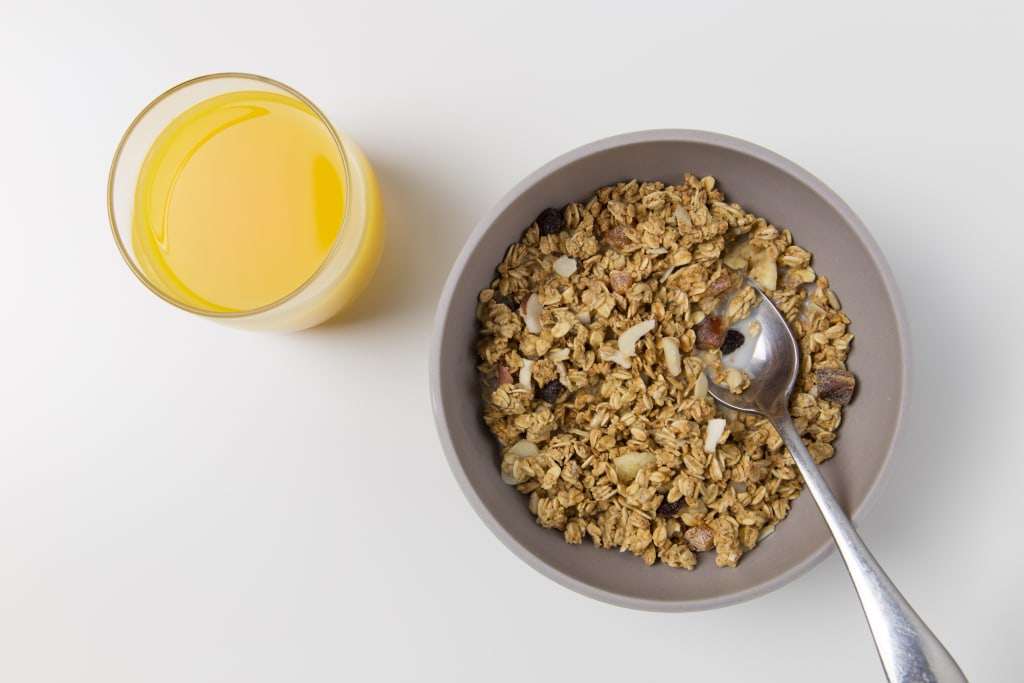Promoting Digestive Health with High-Fiber Foods: The Power of Fiber
Enhancing Digestive Health and Alleviating Pain

Introduction
In our busy lives, eating a balanced diet sometimes takes a backseat, but the importance of dietary fiber should not be disregarded. In this article, the significance of high-fiber diets for constipation is emphasized, along with the impact of these foods on gut health and general wellbeing. By being aware of fiber's advantages, we can enhance digestion, ease discomfort, and achieve a healthy balance in our bodies.
A special kind of carbohydrate present in plant-based diets is dietary fiber. In contrast to other carbohydrates, fiber resists complete digestion, protecting gut health in a crucial way. It encourages easier bowel motions and guards against digestive problems including constipation. Our diet must include fiber-rich foods if we want to maintain a healthy digestive tract and body as a whole.
Fiber Types A and B
Saturated Fiber:
This kind dissolves in water and improves blood sugar control, cholesterol management, and digestion. The foods oats, beans, apples, and citrus fruits are high in soluble fiber.
soluble fiber :
It gives feces more volume, making it easier to have regular bowel motions and avoid constipation. Insoluble fiber is abundant in green vegetables, whole grains, and nuts.
Why Is Fiber Important to Your Body?
In addition to providing a number of other health advantages, fiber is crucial for preserving normal digestive health. In addition to managing diverticular disease, it encourages regular bowel movements, avoids constipation, reduces diarrhea, and prevents it. Fiber also helps people manage their weight by boosting satiety and lowering caloric intake. Additionally, it improves immunological performance while nourishing gut bacteria and promoting heart health by decreasing cholesterol levels and controlling blood pressure.
The Benefits of Fiber for Digestion
Natural cleanser fiber promotes regular, healthy bowel motions. By giving stools more weight and softness, it helps people avoid constipation. Soluble fiber helps treat diarrhea by absorbing excess water. Fiber also prevents pouch formation in the colon walls, which aids in the management of diverticular illness. Fiber helps overall digestive health by encouraging gastrointestinal regularity.
The Function of Fiber in the Control of Weight
Fiber makes you feel fuller longer, which helps you eat less calories overall and control your weight. Foods high in fiber take longer to chew and take up more room in the stomach, so fewer calories are ingested without compromising nutrition. Fiber is advantageous for diabetics since it also lowers blood sugar levels.
Effect of Fiber on Heart Health
By tying up cholesterol and lowering the chance of artery cholesterol accumulation, fiber decreases cholesterol levels. Additionally, it controls blood pressure, which lowers the risk of hypertension and associated cardiovascular disorders. Fiber's combined effects on blood pressure and cholesterol lessen the risk of heart disease.
Dietary fiber and gut flora
Fiber supports a healthy gut microbiome by feeding the good bacteria that live there. The immune system is boosted and overall health is improved by this diversity. Absorption of nutrients is enhanced by a healthy stomach.
Including Foods High in Fiber in Your Diet
Excellent sources of fiber include fruits, vegetables, whole grains, legumes, nuts, and seeds. A high-fiber diet is ensured by including a range of these items in daily meals.
How to Cook to Maintain Fiber Content
Effective cooking techniques for preserving fiber content include steaming, roasting, and stir-frying. Vegetables retain their nutritional value when not overcooked.
Potential Negative Effects of High Fiber Intake
Excessive fiber consumption can result in gas, bloating, difficulty absorbing minerals, and dehydration. Staying hydrated and gradually increasing your fiber intake can help you prevent these negative consequences.
Fibre for Various Age Groups
Adults, teenagers, and the elderly can all benefit from diets high in fiber. Children need fiber to support healthy growth, adults need fiber to help weight control and digestion, and the elderly need fiber to maintain comfortable digestion.
For healthy digestion, a fiber-rich diet is essential. High-fiber diets help us maintain regular bowel motions, relieve discomfort, and improve our general well-being. The benefits of fiber extend to immune system health, heart health, and weight management. Let's make fiber a priority in our meals and enjoy the flavors and digestion benefits it provides.
About the Creator
Kithsiri Chandralal
I am Kithsiri Chandralal, a Sci-Fi Novel writer and a dedicated martial artist. Writing articles. Through my articles, I explores a wide array of subjects, sharing knowledge and insights with readers.






Comments
There are no comments for this story
Be the first to respond and start the conversation.